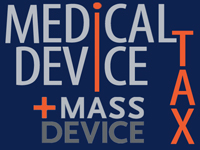
What windfall from healthcare reform?
That’s the point of a new report from an Orange County, Calif.-based investment bank, which pokes holes in the rationale that the 2.3% medical device tax is an appropriate quid pro quo for the millions of patients that will come into the healthcare system as a result of the Patient Protection & Affordable Care Act.
Sign up to get our free newsletters delivered straight to your inbox
The report from Roth Capital Partners cites the performance of 9 medical device companies in Massachusetts, where the universal healthcare law passed in 2006 serves as a primer for national healthcare reform.
"Eight out of 9 companies in our analysis did not see any sign of a windfall when universal healthcare was implemented in Massachusetts. Even more striking, most saw relative under-performance in this state," according to the report.
There is currently no independent analysis of the impact of Massachusetts healthcare reform on the med-tech industry, although several companies have performed internal audits.
An independent study of the Commonwealth’s reform by the Kaiser Family Foundation showed that the law successfully reduced the number of uninsured to 6.3%, a 5% reduction from 2006 and more than ⅔ lower than the national average, which jumped 7% to 18.4% in 2010.
But the Bay State reforms haven’t helped quell costs there, the Kaiser researchers wrote.
"Per capita health spending is 15% higher than the national average and although premium growth has slowed in recent years, Massachusetts has the highest individual market premiums in the country," they wrote.
In August, the state sought to tackle those costs with a 2nd law aimed at cutting $200 billion over the next 15 years, pegging the rate of increase to the Massachusetts economy’s growth.
The Roth report was presented at a meeting in Washington, D.C., Thursday hosted by CONNECT, an organization that supports innovation in technology and life sciences in the San Diego area.

